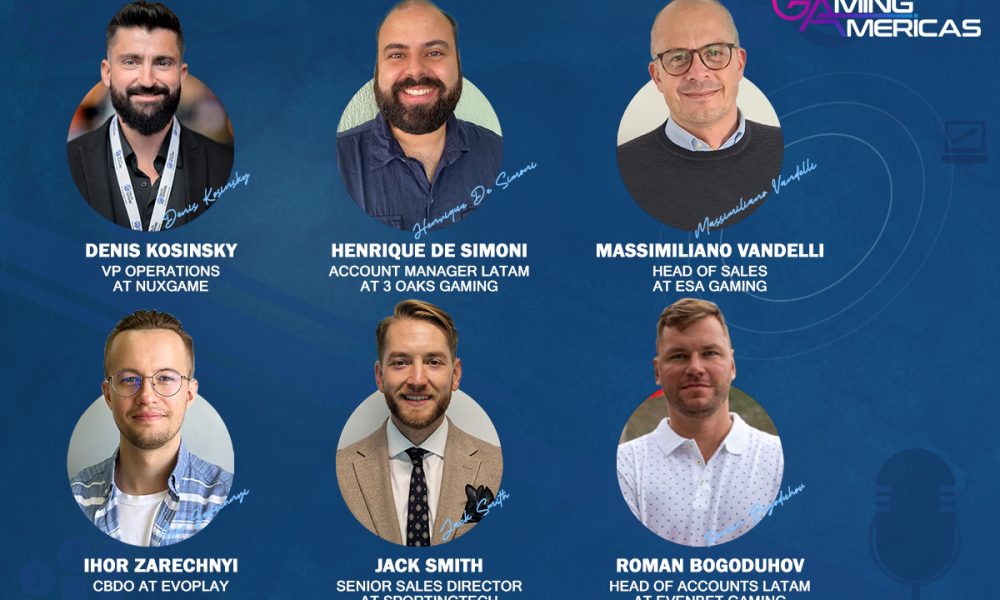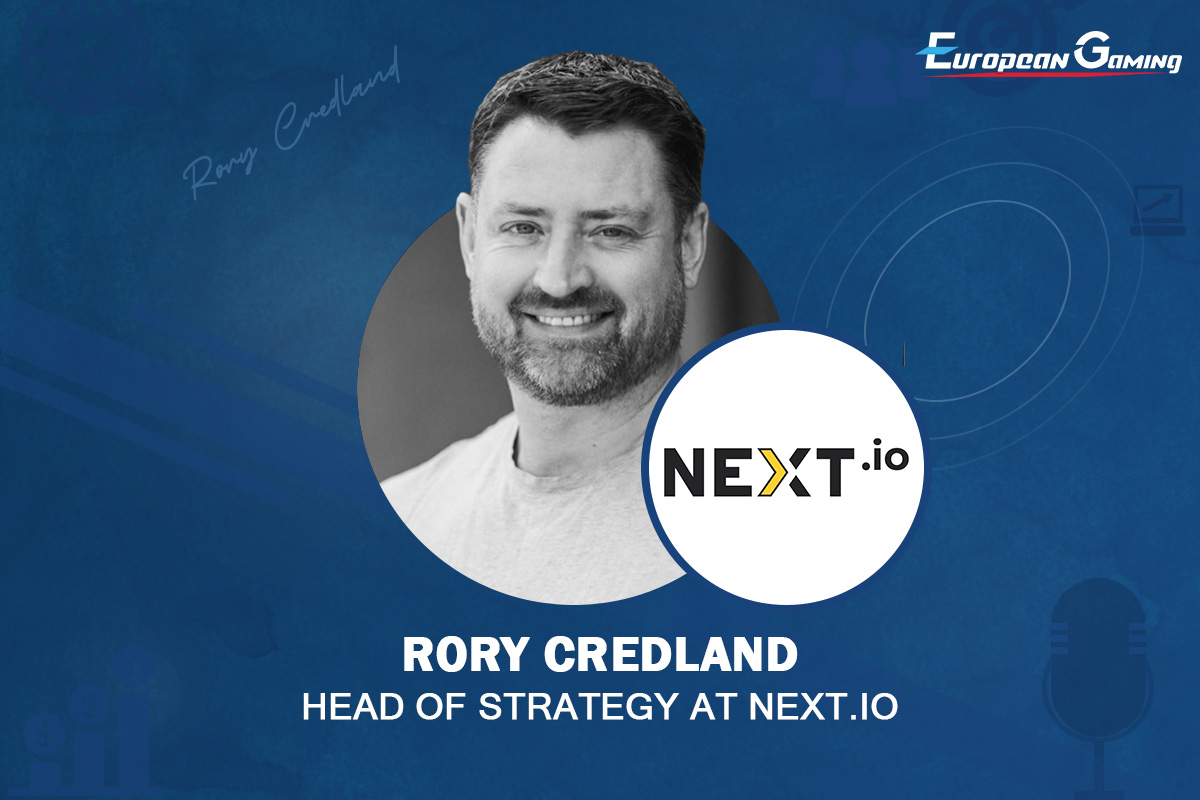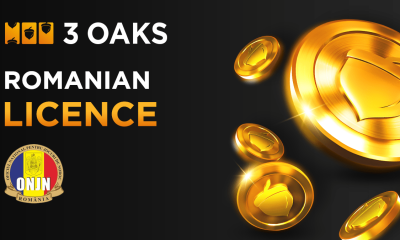Interviews
Exclusive Q&A with Colin Steil, Co-Founder and COO of Cartesi
We usually start with an introductory question. Tell us about yourself. How have you become a blockchain entrepreneur?
I’m Colin, Co-Founder and COO of Cartesi. I am a previous venture capitalist and start-up founder with a passion to make blockchain a reality. I have an expertise in execution and years of experience in community building and business operations across the globe.
I originally got into blockchain while working for my previous venture capital firm, SOSV. We were actively investing in companies in a wide variety of verticals that were always trying to push the boundaries of technology. Some of these companies had discovered blockchain technology early on and were integrating into their existing products, or starting exchanges (such as Bitmex). I got to learn about blockchain through assisting our portfolio companies and fell in love with the technology and the possibilities it brang. From here, I eventually met my current business partners and Cartesi was born.
What is the story of Cartesi? What is special about Cartesi in the blockchain universe?
The Cartesi founding team initially got into blockchain as a result of Augusto Teixeira (our Chief Scientific Officer) being friends with Serguei Popov (Founder of IOTA and inventor of the Tangle).
Serguei Popov, one of our Advisors, initiated Augusto into the crypto scene through the Bitcoin whitepaper and sparked his interest in the technology, knowing that Augusto is a leading expert in cryptography and game theory.
Augusto had the original idea of creating a trustless marketplace for data scientists. Basically, it would allow specialists and companies to engage in a service agreement without the need to know each other or a reputation system. In order to implement that, he invited Diego Nehab (our CTO) to design and implement a reproducible VM capable of running Linux. With this architecture and the protocols Augusto had envisioned, we would be able to make generic computation verifiable by the blockchain. More specifically, the blockchain would be able to initiate routines in the emulator to verify the results sent by the specialists after they completed their jobs. The system would protect the two parties involved, only releasing the funds if the results were proven to be correct.
Later on, after engaging in long discussions, we realized we were tapping into a broader scope. Before Cartesi even had that name, we understood we could actually create a versatile layer-2 Linux infrastructure to overcome the problems of scalability of computation and infrastructure for blockchain applications.
Cartesi is special in the blockchain universe in the sense that it allows decentralized applications to be run within a Linux environment in a way that’s verifiable by the blockchain. Complex processing can be executed off-chain free from blockchains’ computational limits and corresponding fees.
By offering a Linux runtime environment, Cartesi is the only software-based verifiable off-chain compute system that gives developers a vast array of software that evolved in the last 30 years and that enable the applications we use on the Internet today.
You have talked about the twin major objectives of Cartesi in other interviews as well: increasing network efficiency and reducing programming difficult over blockchain? Could you share details about real life projects that actually achieved the objectives?
For sure! No software application is built in isolation. Mainstream mobile/desktop/web Applications today depend on multiple software dependencies that took decades to mature on operating systems like Linux. Cartesi brings all this software infrastructure to blockchain applications. Whereas without Cartesi, blockchain applications cannot use mainstream software, libraries and services, unless they sacrifice decentralization in some way.
Then, there’s the second problem. Besides being hampered by insufficient software infrastructure, decentralized applications also suffer tight on-chain processing limits. So, they can hardly offer a compelling alternative to mainstream centralized applications. They are often hard to build, being clunky and limited for developers and DApp users.
Cartesi solves these three problems by
1) offering developers the software and tools supported by a full Linux OS
2) moving off-chain all the heavy computation over large amounts of data, that blockchains cannot do
3) offering services and a token economy that allows users to securely rely on the network and remain free from inconveniences of blockchain tech (e.g. slow confirmation times, requirement to remain online to resolve disputes, and others).
We have only just recently open-sourced and launched our decentralized tournament infrastructure with Cartesi. With this, we have recently released our first DApp, Creepts – a tournament on a tower defense game. This game showcases a fully decentralized game that was developed using conventional software stocks on Linux and also requiring billions of microprocessor instructions (and thus impossible to run on-chain): https://creepts.cartesi.io
The most significant product from Cartesi for the gaming industry must be Creepts, the blockchain-based game. Tell us more about it.
Creepts is the world’s first fully decentralized tower defense tournament game built with and running on Linux. It is built on top of Cartesi’s Layer-2 Linux solution for blockchains, which is available as an open-source software stack that is under active development.
Currently, Creepts is playable on the Rinkeby Ethereum testnet. In Creepts, players compete against each other to see who can claim the highest score in a fully-featured, real-time, browser-based Tower Defense game map. Players join a tournament by committing their high-scores and game moves to the blockchain, at a negligible cost. The game’s smart contracts then decide who the winner of the tournament is.
In order to play Creepts, players will currently have to go through a rigorous setup experience, downloading docker, setting up Infura, and installing the Cartesi Node. To simplify this in the future, we are now working on a read-write version of Creepts, which will present users with a similar experience to running a normal app without having to deal with any idiosyncracies of blockchain technology.
Is Creepts publically available now? If not, when can we expect to have its public release?
Yes! Creepts is publicly available now on the Creepts website: https://creepts.cartesi.io. We are currently offering both a read-only version which is playable immediately (although centralized) as well as instructions on how to setup the fully decentralize version on Ethereum’s Rinkeby testnet.
What are the values and features that do you think Creepts add to the existing crowded world of games?
Cartesi frees blockchain Layer 2 development from restrictive programming environments. The Creepts game logic that determines player’s scores is implemented in Typescript and runs over a Linux OS. The blockchain components of Cartesi do not care what the software used to write the Creepts DApp is. All it cares about is that Creepts can run inside of the Cartesi RISC-V machine emulator to produce verifiable and disputable game logs and player scores to the tournament contracts.
Cartesi also allows Creepts to be the first blockchain-based multiplayer game that is able to mathematically prevent one of the most impacting cheating vectors in decentralized and competitive virtual worlds from being exploited, which is the injection of arbitrary content into the persisted game state. Creepts can do so while accepting arbitrary off-chain (Layer 2) game logic, written for a Linux OS, incurring massively reduced computational costs for the Layer 1 components of the DApp.
What are the things do you think blockchain technology can bring changes to (let’s say ‘revolutionize’) the gaming and gambling industry?
Blockchain technology brings a lot of advantages and fixes a lot of problems we face in games and development today, largely due to having to trust people. Blockchain can make games self-hosting, so if players love it and are there to pay the transactions, it will never go away or be changed unless mutually agreed upon.
Full decentralization will also make game systems transparent and traceable, with provably fair game-play. This can potentially allow for much higher stakes and bids in tournaments, gambling, or games involving money.
Another big factor is in-game asset ownership. This is something that has already evolved and is quite popular. Blockchain brings the potential for players to truly own their in-game assets, and would even allow them to bring them into other games – this opens up a whole new class of gaming possibilities.
Cartesi is not an exclusive programming platform for the gaming sector. Still, what are the ways in which the existing gaming and gambling software and technologies can make use of Cartesi?
Correct, Cartesi is a general-purpose infrastructure that will enable a new wave of DApps that were not possible before. We are not limited to gaming, but it is a great showcase given the market for DApps and for Cartesi’s technology.
Now that we’ve released our decentralized tournament infrastructure, gaming companies can easily create never before seen tournament DApps without having to know about blockchain development, they can even create these complex games with any software of their choice. In addition, we’ll be launching our SDK and documentation next quarter, which will guide developers to build with Cartesi and venture into different kinds of game development.
We’re looking forward to see what people can come up with in terms of games on Cartesi!
The ongoing Corona outbreak is really in the process of crippling the world economy. Hope your company’s operations are going smoothly. Some experts say this would be like pressing a reset button on all fronts. How do you estimate the future of blockchain technology in a reset world? We would love to hear your views on this.
Our thoughts are with all those who are affected by the current outbreak that is going on. We hope it gets better soon.
It is very hard to predict or understand the effect coronavirus will have in how the world works, but one thing that has become clear is how decentralization is important in times like this. For instance, governments may be acting in haste by printing loads of money to cover up for lack of preparation, which is basically another way to tax the poor. Blockchain, DeFi and cryptocurrencies could be used to protect yourself against government actions such as these depending on where you live in the world. Individuals are growing increasingly scared of authoritarian methods that are employed by governments, and it may be used as an excuse to escalate this authoritarianism around the world, where blockchain would be another good defence.
We are of course hoping things become stable soon and the world carries on. Wishing everyone safety and good health!
If you have some important topic you would like to discuss, we are ready to talk to you! Please contact me on [email protected] and we can set up an interview.
eSports
eSports in the CIS region , Q&A w/ Viktor Block, Senior Sales Manager/PandaScore

Esports has long been popular in the CIS region, with various top-tier teams and players all calling it home. How has the landscape evolved over the last few years? Have any particular trends emerged that have surprised you at all?
Esports boomed in the CIS region in 2008 when Multiplayer Online Battle Arena (MOBA) games became really popular. While esports had been a thing as far back as 2003, the rise of games such as Counter-Strike and DOTA2 was a major catalyst for the upward trajectory the sector has been riding ever since. In recent years, the infrastructure needed to support esports has improved drastically across the CIS region, including the construction of the Pixel Esports Arena in Minks, Belarus, and the Cyberspace Arena in Almaty, Kazakhstan, both of which hold top-flight contests. Internet connectivity has also improved, while support from local and international sponsors such as Monster Energy, Red Bull and War Gaming have provided funds for further investment while also driving awareness. Ultimately, this has seen the landscape evolve into a thriving industry with lots of opportunities for further growth.
In terms of trends, and especially relating to esports betting, I’ve been surprised by the high demand for betting on console games – we call them eBattles and they include disciplines such as eSoccer and eBasketball. I think this is just a natural development that has occurred off the back of strong demand for video game content, which is often the bridge between traditional sports and esports.
What factors have contributed to esports’ growth in the CIS over the past few years?
One of the biggest factors for me is that teams have become more professional and are now training and playing in well-run clubs. This takes place in dedicated buildings and rooms, set up with high-speed internet and the absolute best gaming equipment. Player salaries have also gone up, which has increased the calibre of players taking part in contests across the region, taking competitiveness to the next level. Today, many CIS players now play for high-ranked teams such as Virtus.pro, Team Spirit, Betboom or Na`Vi which compete on the international stage. This in turn is helping esports grow across the CIS region.
Given how many countries are in the CIS region, can you walk us through some of the biggest regulatory differences when it comes to betting on esports? And how does PandaScore navigate these changes?
The legality of betting and esports betting differs from country to country within the CIS region. Some are super strict or even prohibit gambling, while others take a more liberal approach, regulating the activity and licensing operators. Let’s take a look at some of the biggest markets and their approach.
In Ukraine, esports has been recognised as a sport since 2018 and in 2020 the country regulated and licensed gambling for the first time. The law focuses mostly on standard betting – sports and casino – but is likely to also include esports betting given that esports is a recognised sport in the country with tier-one Ukraine sportsbooks like Favbet and Parimatch offering it to their players.
Kazakhstan has a growing gambling industry with betting shops and casinos operating in major cities such as Almaty and Nur-Sultan. Gambling is regulated by the Ministry of Culture and Sports and while the regulatory framework is somewhat restrictive, sports betting – which is likely to include esports betting – is permitted.
Navigating the constant changes in betting regulation across the CIS region can be challenging, so we make sure to keep up to speed with the latest developments by monitoring legislative updates and amendments to regulatory guidelines. We also track industry trends and best practices to anticipate regulatory changes ahead of time, allowing us to adapt quickly if needed. This can involve benchmarking against competitors, attending conferences and networking with key stakeholders.
In your view, are there any unique opportunities for the expansion of esports and esports betting within the CIS region? And how does this differ to other regions?
It’s important to understand that CIS, especially Ukraine and Kazakhstan, play by their own rules. By that I mean they are very different to other esports markets, so don’t think what works in Italy will work in Ukraine. For example, while League of Legends is very popular in Europe, in CIS, it’s Dota 2 that takes the top spot. But for those who can understand the region and each market, there are plenty of opportunities to explore.
Let me elaborate. Dota 2 is thriving in the broader CIS, with regular tournaments and events attracting large audiences both offline and online. teams like Natus Vincere (Na’Vi), Virtus.pro and Team Spirit have achieved significant success in Dota 2 competitions, contributing to the game’s popularity in the region. While Dota 2 is big, other video games also enjoy significant popularity, including CS2, World of Tanks and Fortnite among others.
Operators need to consider this when deciding their markets and odds, marketing strategies and plans for player engagement.
What would you say is the key to creating a successful esports product for a CIS audience?
Understanding layer preferences in each market and delivering an experience that exceeds their expectations. For the CIS region, this means focusing on Dota 2 – this is a game that offers deep and strategic gameplay requiring teamwork, communication and skilful execution of plans and strategies. Its competitive nature appeals to gamers as they enjoy the challenge of multiplayer experiences – this goes back to the original MOBAs back in 2008. These factors must be present in the esports betting experience offered to players – at PandaScore, this means a comprehensive Dota 2 offering that covers markets such as Kills, Towers, Roshans and Barracks, with players able to challenge themselves in a betting competition against others.
Support is also key to delivering a quality player experience. We offer round-the-clock assistance and are regularly rolling out updates to improve the experience players receive when betting on esports at sportsbooks using our data, odds and betting tools such as our Bet Builder. We are always working hard to expand our offering to cover the most in-demand games including CS2, Valorant, Call of Duty and many more.
What trends or developments do you anticipate shaping the future growth of esports in the CIS region over the next few years?
The industry will continue to grow and become more professional. Esports is different to traditional sports and it still lacks recognition in some markets, even though it is considered an official sport in a growing number of countries across the CIS region. I think as it evolves, more governments will provide more support for esports as it brings tremendous economic, cultural and social benefits. This could include funding for esports initiatives, rolling out regulatory frameworks, helping to foster partnerships with esports organisations or simply recognising it as a sport.
The continued proliferation of smartphones across the region will be a further catalyst for esports growth. Titles such as PUGB Mobile, Free Fire and Mobile Legends: Bang Bang will attract large audiences and provide new opportunities for teams, players, sponsors and other stakeholders to explore. This is a really exciting time for esports and esports betting in the CIS region, and PandaScore is thrilled to be part of it.
The post eSports in the CIS region , Q&A w/ Viktor Block, Senior Sales Manager/PandaScore appeared first on European Gaming Industry News.
Brazil
Counting Down: A Roundtable Preview of Brazil’s iGaming Era

As Brazil finally gives the green light for sports betting and iGaming, industry leaders are gearing up for a transformative chapter in 2024. In this insightful roundtable discussion, we had the privilege of engaging with key figures, namely Henrique De Simoni (Account Manager LatAm at 3 Oaks Gaming), Massimiliano Vandelli (Head of Sales at ESA Gaming), Denis Kosinsky (VP Operations at NuxGame), Ihor Zarechnyi (CBDO at Evoplay), Jack Smith (Senior Sales Director at Sportingtech), and Roman Bogoduhov (Head of Accounts LatAm at EvenBet Gaming) to delve into the exciting prospects of casino entry into the newly regulated market. Our focus centred on the meticulous preparations undertaken by suppliers, understanding local player preferences, and exploring the collective vision for the future of this burgeoning market.
As the journey to secure the final approval for iGaming regulation in Brazil concludes, what strategies and preparations has your company put in place for the upcoming market launch?
Henrique De Simoni
Despite Brazil’s iGaming market being in its incipient stages, it has transitioned from a rising star to a tangible reality. This regulatory milestone in the largest Latin American country signifies a plethora of opportunities for the entire iGaming ecosystem, spanning from operators to providers.
As a company known for its agility and meticulous attention to detail, we’ve been actively engaging with key events in the region such as SBC Brazil, and SiGMA Americas. By fortifying our network and relationships with major operators, platforms, and aggregators, we’re positioning ourselves strategically for the impending market launch.
Massimiliano Vandelli
The impending regulation of iGaming alongside sports betting in Brazil presents a pivotal opportunity for our company. We’ve meticulously prepared for this milestone by adopting several strategic initiatives. Firstly, we recognise the significance of a diverse portfolio, particularly given the potential exclusion of certain online casino games. Therefore, we’ve focused on ensuring a balanced offering to cater to varying preferences and regulatory requirements.
Localization lies at the core of our approach. Brazil’s vast and distinct market demands tailored solutions, encompassing language support, minimum bets, and game types that resonate with local preferences. Additionally, understanding the nuances of player behaviour, such as volatility preferences, is crucial for delivering a compelling gaming experience.
Furthermore, leveraging our existing partnerships with established operators positions us strategically in capturing a substantial market share. We have a track record of success with these operators, and collaborating closely with them not only strengthens our market presence but also facilitates smoother market entry.
Ihor Zarechnyi
Evoplay’s business strategy after the final approval of iGaming regulation in Brazil will involve forging key partnerships to strengthen our position in the Latin American market.
With Brazil’s population surpassing 215 million and the local audience’s passion for entertainment, our diverse game portfolio is calibrated to cater to their preferences. Our overarching goal is to replicate and surpass the success we’ve already achieved in Latin America. We focus on enhancing the gaming experience of Brazilian players by addressing their entertainment requirements.
Denis Kosinsky
As for all new market entries, our strategy for Brazil consists of compliance, localization, partnerships and innovation. Much like Europe, Brazil is a highly fragmented market and each state should be approached on a case-by-case basis. We are customizing our platform for Brazilian players by adapting to the culture in terms of language, local payment methods and games that resonate locally while our multi-brand feature can be used by casino operators to manage different geos. We’ve also turned our attention to forming partnerships with Brazil-based companies, enabling us to both broaden our reach and enhance our offering.
With smartphones dominating as the preferred device for iGaming, we’re optimising our tech’s mobile compatibility for a superior experience. In addition, our marketing efforts are tailored to engage Brazilian audiences through localized content and community events. As Brazil finalizes its iGaming regulations, NuxGame is ready to deliver a comprehensive and culturally attuned gaming experience.
Jack Smith
We have recently seen that the Brazilian government has now officially recognised GLI as a certified testing lab. As part of this we have made continued efforts to conform to GLI 19 and GLI 33 which are synonymous with other markets on a global level. In addition to that we have also been working closely with Serpro on data transfer requirements.
In terms of strategy, our stance remains the same as always. We are focused on collaborating with our operators to ensure that we give them all of the technical tools and capabilities to harness their own local expertise and continue to be successful. This is crucial in what will likely be a very competitive market.
Roman Bogoduhov
The country is still at the early stages of regulation, so setting rules and transforming them into business practices will take several long and hectic months. Traditionally, online poker is not the first vertical to be regulated, and this is the case for Brazil as well: our turn will come after sports betting and online casino games. What we are doing now is a lot of homework and preparation: connecting with the market stakeholders, getting to know the player preferences, specific market challenges, and software demands.
Product localisation and customisation are at the core of the EvenBet Gaming platform, and our offering has to be ready for the market launch. So, our business development team explores the market and identifies the features and solutions needed by the Brazilian operators and players, so that we can adapt our product to their needs.
Also, it’s crucial to mention that the Brazilian iGaming community is quite closed and somewhat wary towards foreign vendors and providers, preferring to establish partnerships with companies that demonstrate a proven success record in the local market. While regulation moves forward, we can take it slowly, creating fruitful relationships, showcasing examples of our partnership with operators in South America and educating the market on the business strategies allowing us to earn on poker.
In anticipation of the iGaming launch, which specific verticals do you believe will capture the hearts of local players, and have you identified any unique preferences or trends that are shaping your approach?
Denis Kosinsky
As part of our continuous improvement strategy, NuxGame conducts regular market research and player feedback analysis to tailor our offering and stay ahead of the tech curve. With our aims of delivering a diverse, engaging, and secure gaming environment that aligns with local player preferences, we have identified key verticals that are poised to captivate local players.
Mobile gaming is one of the largest growing trends worldwide and Brazil is no different. NuxGame’s platform has optimized games to present a seamless mobile experience, catering to this increasing demand. Looking at specific genres, live dealer games perform particularly well in Brazil. For these titles to flourish moving forward, it is important to ensure that there is a Portuguese-language option in addition to high-quality live streaming and a diverse array of experiences to engage as many players as possible. Brazil is also a large adopter of cryptocurrency and blockchain technology. NuxGame’s Web3 technology and cryptocurrency purchasing feature position us to leverage these technologies for secure and efficient gaming experiences.
Ihor Zarechnyi
Initial findings from Brazil reveal a strong preference among the local audience for online casinos and sports betting. Based on third-party market research, it appears that Crash games capture the attention of 79.61% of Brazilian players. Following closely behind are slots, with a significant 39.83% engagement. Leveraging these data and our experience in the LatAm market, we’re confident that Evoplay’s diverse game portfolio, particularly our sport-themed titles, will deeply resonate with this audience.
However, despite our solid foundation, we remain committed to further understanding the local business culture and refining player communication approaches for strategic success. We’re actively developing exclusive projects like Slotopia and Bingo to enrich our offerings and cater to diverse player demographics.
Roman Bogoduhov
Undoubtedly, sports betting will stay the top online vertical in Brazil. As the market expands, new technologies and advanced solutions are coming to the country, online sports betting has a chance to become more prominent than offline, thanks to live bets, mobile access, and fast and secure payments which become available as the regulation settles.
Traditionally, the lottery is the second most popular gaming activity. Still, the state has a monopoly here, so the operators and vendors will demand lottery-like games: bingo, scratch games, keno, etc. Live casino games, card games (including poker and blackjack), and new trends like crash games will follow the leaders.
Jack Smith
As we know in most established markets there is a traditional split between sports betting and casino with Brazil unlikely to differ. Brazilians have a huge affinity with Soccer and that is not going to change anytime soon with more operators vying for sponsorship opportunities with its biggest clubs.
The inclusion of iGaming into the bill was hugely important as well as this represents a sizeable piece of the market. The likelihood is that we will likely see this continue to grow through traditional live dealers and crash games which have proven to be popular in the region as well.
At Sportingtech we recognize iGaming’s importance, hence why we are continuing to partner with local games providers to supply fresh new casino content that we feel will identify with the consumer. It remains to be seen how the landscape will change in the future but as always, our teams will continue to research the market and look for new innovative products to satisfy Brazilian players.
Massimiliano Vandelli
We foresee a diverse landscape of gaming verticals that will resonate with Brazilian players, driven by both traditional and innovative content. One area of particular promise lies in non-traditional games, such as crash games, which have demonstrated considerable appeal across Latin American markets. Our EasySwipe portfolio, in particular, stands out as a compelling offering for sportsbooks seeking to diversify into casino games. For instance, games like Goal Mine World, which allows players to personalize their gaming experience by selecting colours associated with the Seleção Canarinha (Brazilian national team), are tailored to resonate with local tastes.
Our widget integration within sportsbooks has already yielded remarkable results, fostering player loyalty and facilitating seamless cross-selling between sports and casino content. This underscores the importance of delivering fast and engaging casino experiences that complement sports betting activities.
While sports are expected to drive significant engagement, the initial interest from online operators targeting the Brazilian market indicates a growing demand for high-quality casino content as well. In response, our latest line of video slots, featuring titles like 12 Deadly Spins and Candy Drops, is poised to captivate avid casino enthusiasts seeking immersive gaming experiences.
Henrique De Simoni
Absolutely! With our company’s wealth of experience in the iGaming industry, I’ve been entrusted with spearheading our efforts in LatAm, particularly in Brazil. Understanding the local culture, speaking the language, and possessing a background in the B2C sector allows us to infuse our offering with user-centric experiences for enhanced player engagement.
I firmly believe that cross-selling will be the primary vertical to target. Seamlessly transitioning players from the sportsbook to casino presents a golden opportunity, especially in a country where sports hold significant cultural sway. While crash games have made initial waves, we anticipate slots to take centre stage in the long run. Our successful slot title, Coin Volcano, with its captivating theme, user-friendly gameplay, and vibrant graphics, exemplifies the high-quality gaming experiences we’re aiming to deliver in the market.
What are your overarching expectations for its trajectory? Are there specific milestones, challenges, or growth indicators that you foresee shaping the landscape in the coming years?
Massimiliano Vandelli
Looking ahead, we anticipate various challenges and growth indicators that will shape the trajectory of our operations in Brazil. Regulatory developments, including the implementation of iGaming legislation and associated licensing frameworks, will significantly influence market dynamics and operator engagement. Furthermore, evolving player preferences and market trends, such as the integration of sports and casino content, will present both opportunities and challenges for our growth strategy.
Primarily our aim is to secure significant exposure for our games with leading operators in the market. To achieve this, we are committed to fostering and strengthening our relationships with major partners in Latin America, who are poised to play a pivotal role in the market. We’re exploring opportunities for exclusive partnerships, developing sports-driven content, and creating bespoke games tailored to the requirements of major operators. By prioritizing localization, we aim to enhance player engagement and drive adoption of our offerings across the Brazilian iGaming landscape.
Jack Smith
Given the strong interest by what feels like the majority of the iGaming industry, it’s fair to say that everyone sees the growth potential in Brazil over the coming years. Research suggests that revenues will reach $2bn in 2024 and a projected market volume of $4bn by 2029. If those projections were to be correct, Brazil would solidify itself as one of the largest markets globally.
There aren’t specific milestones we are working towards but the continued increase of internet penetration in Brazil will play a crucial role in the development of the online gambling market. Smartphones are becoming more cost effective and available to everyone, and with the incoming legislation we will see the introduction of native apps to the iOS and Google Play stores. This will add an additional layer of convenience to the consumer.
There is also the retail opportunity, which has been hidden in plain sight for a number of years, so it will be interesting to see whether operators transition into retail to penetrate players who are limited to cash only transactions.
Ihor Zarechnyi
With the market’s upcoming launch, we anticipate a notable surge in activity. However, like any new endeavour, this journey may be accompanied by challenges and will require thoughtful, well-balanced actions from regulatory authorities and market participants.
We maintain a positive outlook based on predictions that Brazil’s online sports betting, casino, and bingo market could soar to nearly $3 billion in revenue by 2027, positioning it among the world’s leading markets.
As we navigate rapid growth, it’s important to acknowledge the potential risks, including market overheating. However, armed with a robust strategy and a line-up of games that culturally connect with Brazilian players, we’re well positioned for success in further solidifying our standing in the LatAm market.
Henrique De Simoni
The average Brazilian spends over nine hours on the internet per day, signalling a profound digital presence ready for exploration. As such, we’re poised to leverage this extensive online engagement by ensuring our high-quality games, coupled with robust gamification elements, provide unparalleled slot experiences.
In anticipation of numerous new entrants and potential mergers and acquisitions in the market, we’re gearing up for increased competition. With over 134 companies vying for licences in Brazil, each capable of operating three platforms, the landscape is primed for expansion, with an estimated 402 regulated betting sites anticipated. Despite the challenges ahead, we’re optimistic that our expertise and ability to resonate with the Brazilian audience will set us apart. The best is indeed yet to come!
Roman Bogoduhov
Now the Brazilian iGaming market is shaping, and once the project is launched and adapted to the local preferences, it’s relatively simple to compete and acquire players. The operators will win with attractive bonuses and promotions, well-thought campaigns, and in particular social media marketing and influencer-based advertising. Brazil is one of the biggest influencer markets in the world, according to the statistics, up to 45% of consumers here trust social media platforms and recommendations. At this stage, I will not be surprised if Instagram and TikTok are literally invaded by sports betting and casino placements.
During this initial bountiful period, operators must keep in mind long-term goals. Given the difficult history of long and painful payouts and the lack of local or at least Portuguese-speaking customer support, these two operational aspects are irreplaceable for building trust and long-term engagement and are currently in the top three reasons for player churn.
Denis Kosinsky
With regulation finally being implemented, we can expect Brazil to become a favorable market for growth and sustainability. Early insights signal toward rapid expansion fuelled by the recent legislation, while its young, tech-savvy population’s strong interest in digital entertainment means it is poised to become one of the biggest markets worldwide. Pivotal to success in the market will be player acquisition and retention strategies that provide a superior user experience. Initiatives such as loyalty systems, player battles and brand customization will be critical in retaining players and staying competitive.
We’re closely monitoring growth indicators such as user engagement metrics, market share expansion, and the adoption of new gaming technologies to adapt our strategies for sustained growth. Furthermore, responsible gaming, at its core, is the most important contributor to making the gambling industry sustainable in the long-term. To play our part in this, NuxGame will be focusing on ethical practices to foster a safe and sustainable gaming environment.
Stemming from complex regulatory frameworks, compliance requirements and heightened competition, encountering challenges in a new market is unavoidable. Through our dedication to innovation, customer satisfaction, and strategic partnerships we can address these obstacles before they arise and ensure a smooth launch into the regulated Brazilian market.
Interviews
Exclusive Q&A w/ Rory Credland, Head of Strategy at Next.io

- Could you provide an overview of the upcoming Next.io summit in May?
We are hosting our 4th annual NEXT.io event in Valletta on 15 – 16 May. With a global delegation of 5,000 attendees, Valletta’24 is more than just a conference; it’s where groundbreaking ideas and innovations converge. In addition to the leadership stage, we host several side tracks on marketing, investment, HR, sustainability, technology, emerging markets/jurisdictions – plus a new track on personal development. As we expect over 5,000 attendees, we have also increased our networking space with a new hall dedicated to more exhibitors, entertainment area, lunch, and a chill-out zone. Finally, our recent partnership with Ask Gamblers will ensure greater affiliates and operators in attendance, so as you can see there is definitely something for everyone and the event promises to be one of endless connections and activities.

- What speakers or panelists can attendees expect to hear from during the summit?
We have tailored the event to make this event the pinnacle of the iGaming industry, offering unparalleled networking opportunities and insights from 300 industry-leading voices. We have many c-level speakers attending including Angus Nisbet, VP Gaming, BetMGM, gaming industry expert Paris Smith, Lahcene Merzoug, CEO. PressEnter, Francesco Postiglione, CEO, Casumo, Martina Akerlund, CEO, CallsU, Jeffrey Haas, Chief Growth Officer, William Hill, Todd Haushalter, CPO, Evolution Group, Tim Heath, General Partner, Yolo Investments plus an amazing keynote to kick off the start the event. We have two amazing keynotes to kick-start day 1 and 2 of the event, so I urge you to check out our agenda via
- Can you share any insights into the format of sessions and discussions planned for the summit?
We like to change the formats and concepts up at NEXT.io compared to the norm that you see at other organisers. For instance, we base our talks at 30mins max to ensure that it is short and sharp straight to the point discussions and a limited number of speakers on each session so that more interactive discussion and debate can be had. We also are putting the CEOs under the spotlight this year – think Mastermind – with each CEO – one by one – under a “spotlight” for 10mins with direct questioning from the host. Should be awesome and insightful.
- How does Next.io ensure diversity and inclusivity in the selection of speakers and participants for its summits?
Internally we take an active stance to ensure that there is a cross selection of speakers to this regard based on our own internal metrics. Wherever possible we encourage new speakers to be put forward by their organisations or through connections that we make – this allows for new and different perspectives on the discussion to hand which make the event and tracks interesting and informative for the audience.
- What unique networking or collaboration opportunities will be available to participants during the event?
For two years ago we have designed NEXT.io Valletta to be a festival week of iGaming, encouraging people to arrive for the week to take part in our activities we have on the Monday and Tuesday before attending the event on Wednesday. This year we have Golf, Padel, Run Club plus many networking events taking place from Tuesday through to Friday night, so check out the website where you will be able to find more information.
- How does Next.io leverage technology or innovation to enhance the summit experience for attendees, whether in-person or virtual?
We have a unique advantage hosting the event at the MCC in that the main stage is built like a theatre – so with use of such a big stage we can use LED screens which allow for animation and interaction on screen as well as several attendee applications which ensures they get directly involved with what session is taking place and have an input into the direction of the questioning.
- What motivated Next.io to choose Malta as the location?
NEXT.io head office is based in Malta, so it felt a natural fit to organise our flagship event within the country and at one of Malta’s iconic venues – The Mediterranean Conference Centre – with epic views over the harbour and Mediterranean Sea. When NEXT.io was formed the company had amazing support from the Maltese Gaming Authority who backed us at the time and so since day one we continue to use Malta to host what we feel is becoming an event on everyone’s calendars.
- How does Next.io ensure that its summits provide a platform for emerging voices and perspectives alongside established leaders and experts?
As mentioned previously we like to continuously promote not only the established experts but also the leaders of tomorrow. Our Advisory Board is instrumental in that regards as they also have an ear to the ground as to whom is best to suggest for topics and discussions. I think what works best is a mix of experience and new to crate that interesting discussion on stage.
- How does Next.io plan to capture and share the insights and outcomes from the Malta summit to extend its impact beyond the event itself?
We record our main stage sessions and use this through our awesome marketing to promote the event long after it is over via access on our news part of the website. In fact, we never see an event having an “end” more of a continuation to the next show as we promote what was and what is new for the following year. Continuous dialogue with our audience and clients is important to ensure consistent messaging and allows us to react to what market forces are in play at the time.
The post Exclusive Q&A w/ Rory Credland, Head of Strategy at Next.io appeared first on European Gaming Industry News.
-

 Africa4 weeks ago
Africa4 weeks agoA Comparative Analysis Of Land-Casinos and Online Casinos in South Africa 2024
-

 Latin America4 weeks ago
Latin America4 weeks agoPeru Gaming Show Announces Expansion
-

 Australia3 weeks ago
Australia3 weeks agoCrown Approved to Retain its Melbourne Licence
-

 GAT Expo3 weeks ago
GAT Expo3 weeks agoPragmatic Play Prepares for GAT Cartagena Gaming Week 2024
-
Africa2 weeks ago
BMM Testlabs Continues Its Expansion in Africa with New Licenses in Botswana and Nigeria to Test Land-Based and Digital Products
-
Australia2 weeks ago
VGCCC Fines Bookmaker MintBet $100,000 for Repeat Breaches of its Responsible Gambling Code of Conduct
-

 Compliance Updates3 weeks ago
Compliance Updates3 weeks ago3 Oaks Gaming extends European reach with Romania licence
-

 Africa2 weeks ago
Africa2 weeks agoIESF African Regional Qualifiers Host Announced




